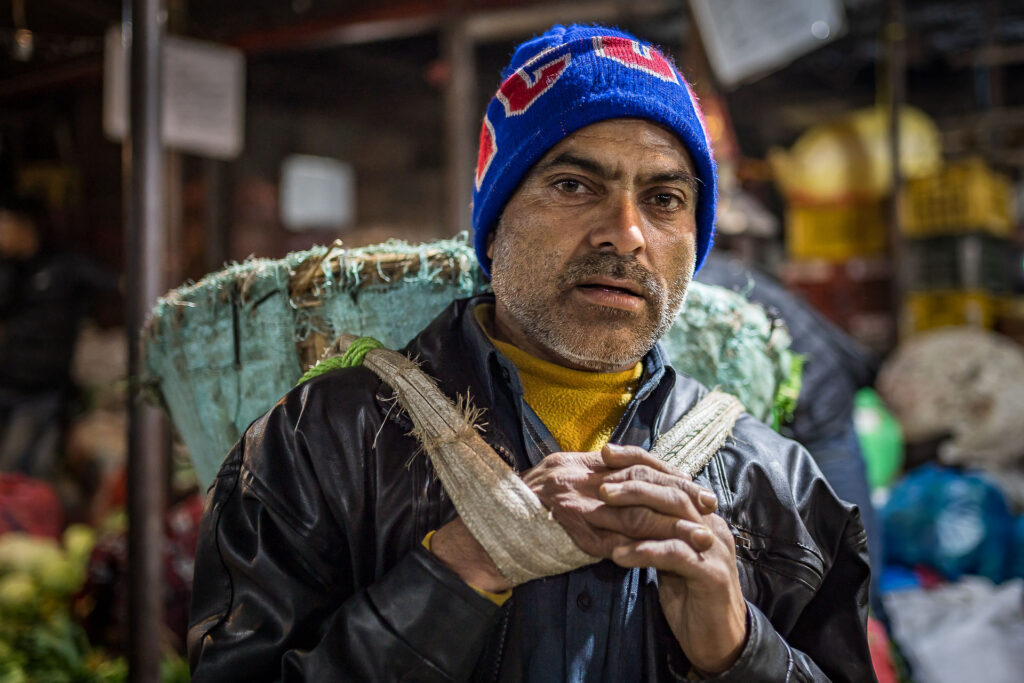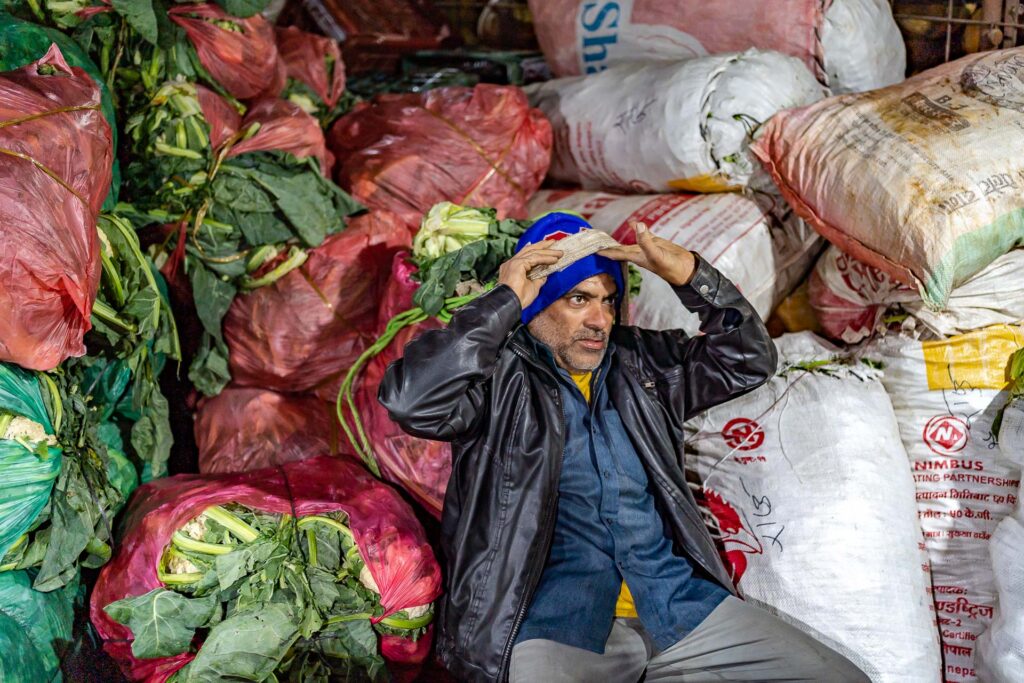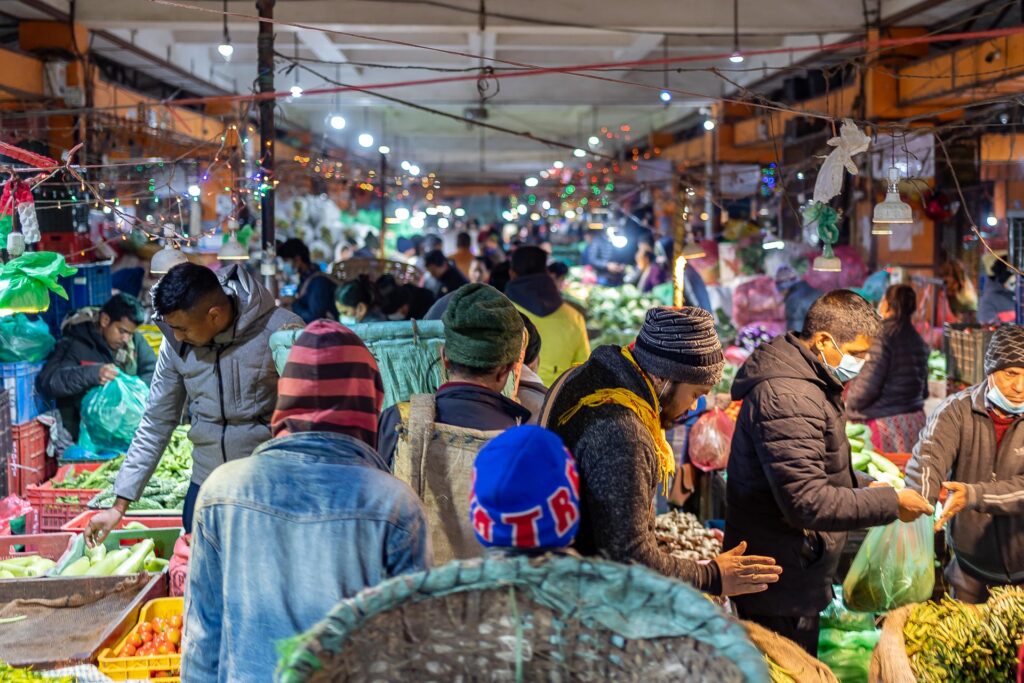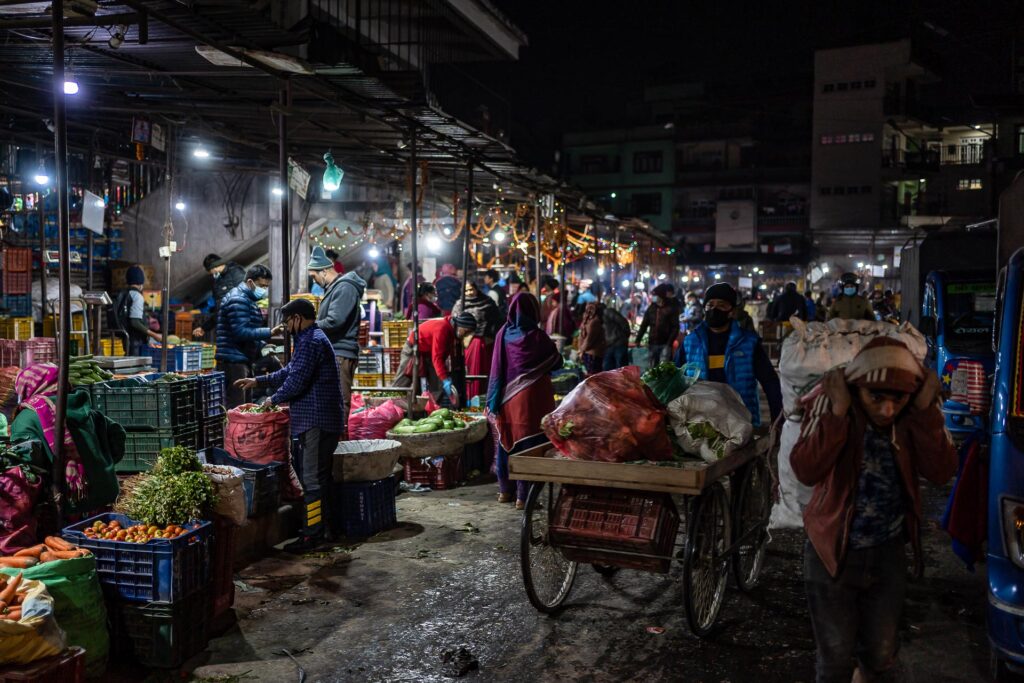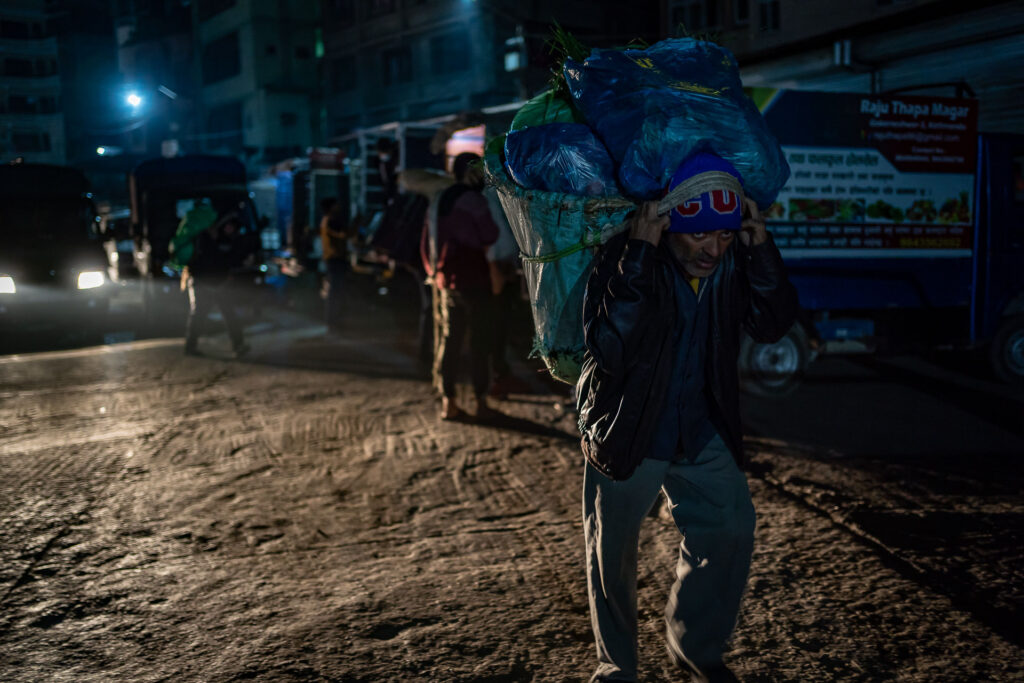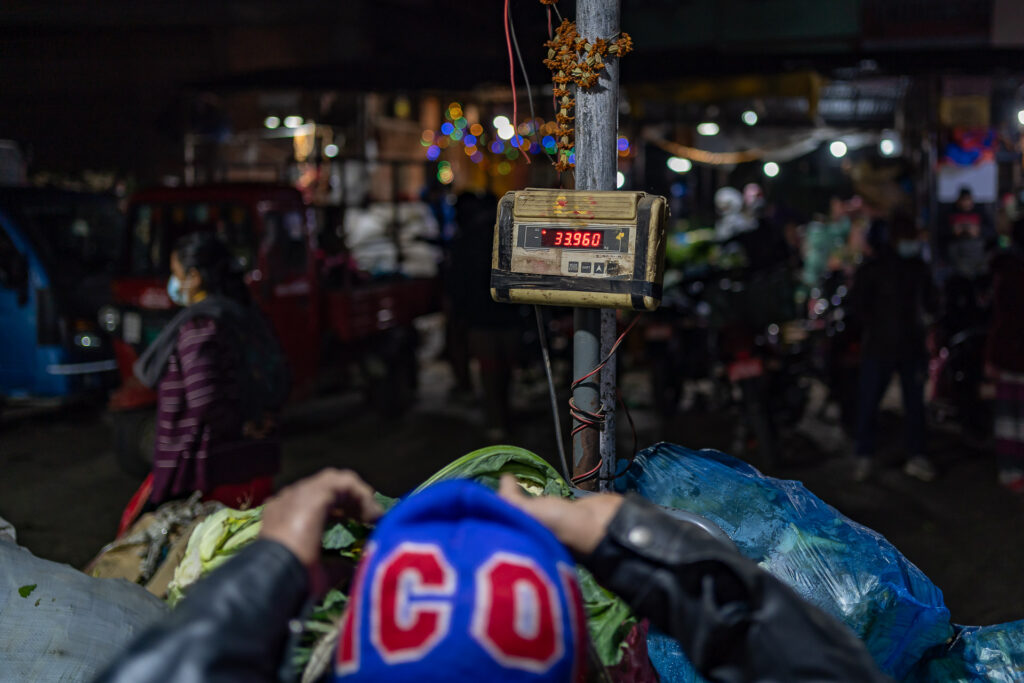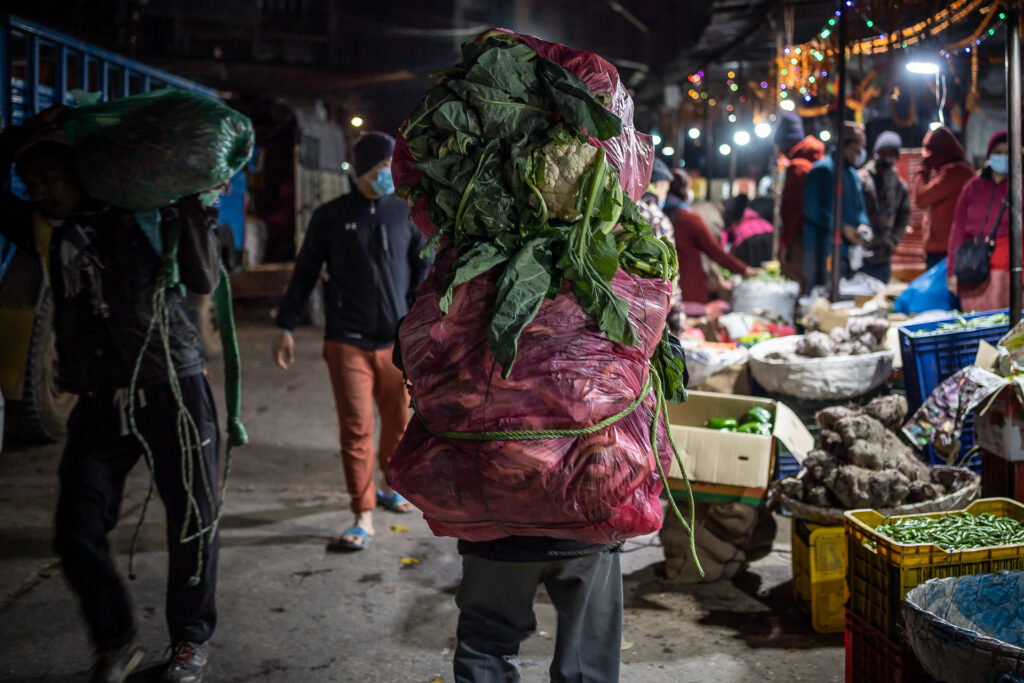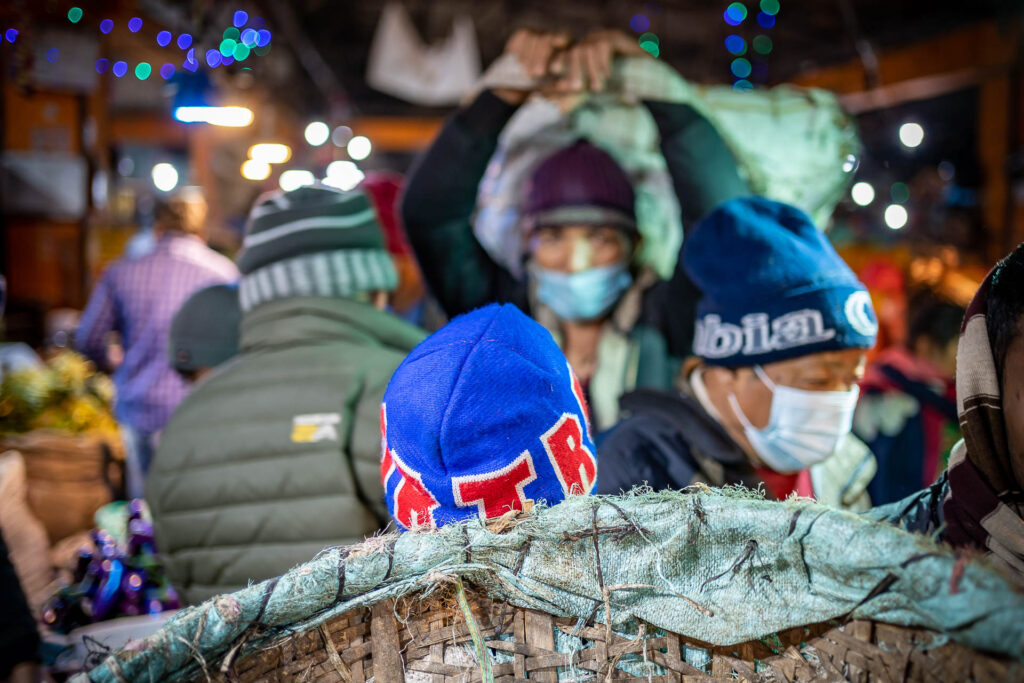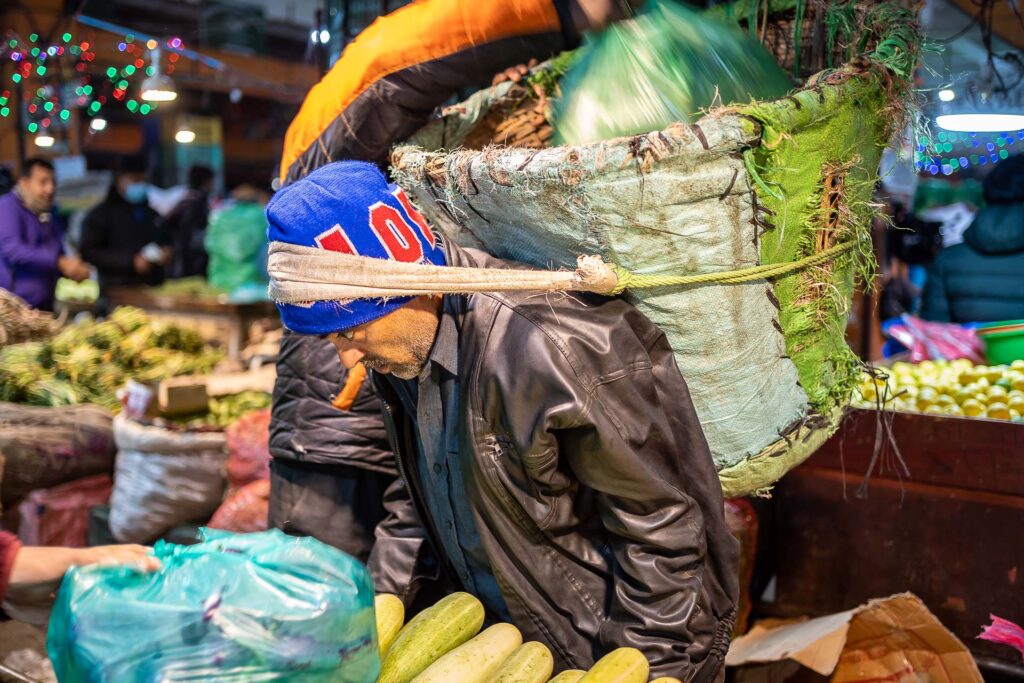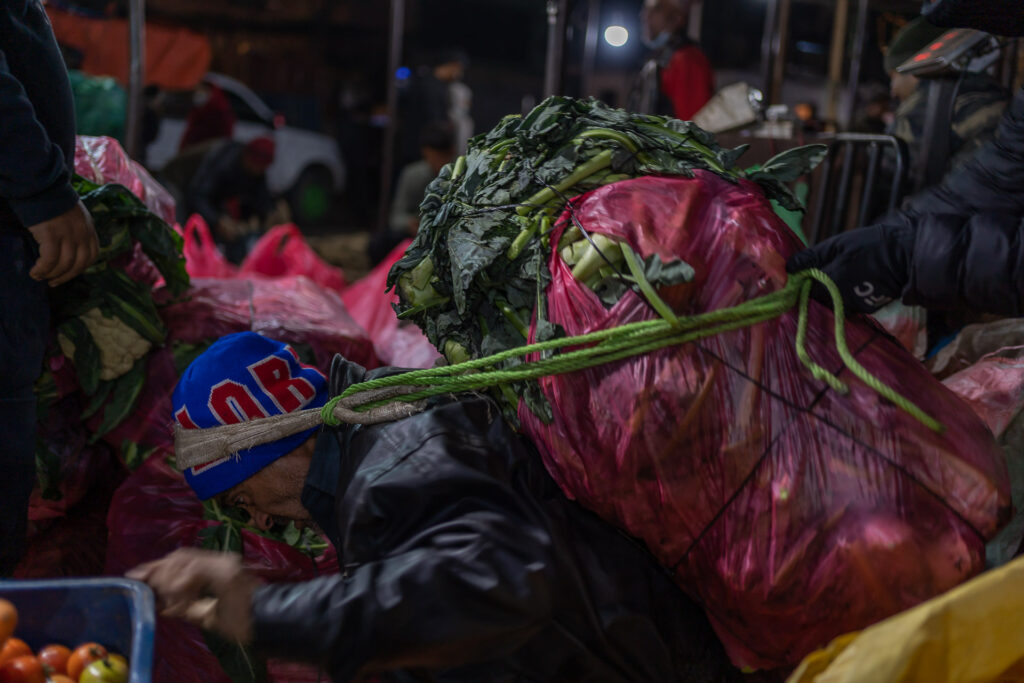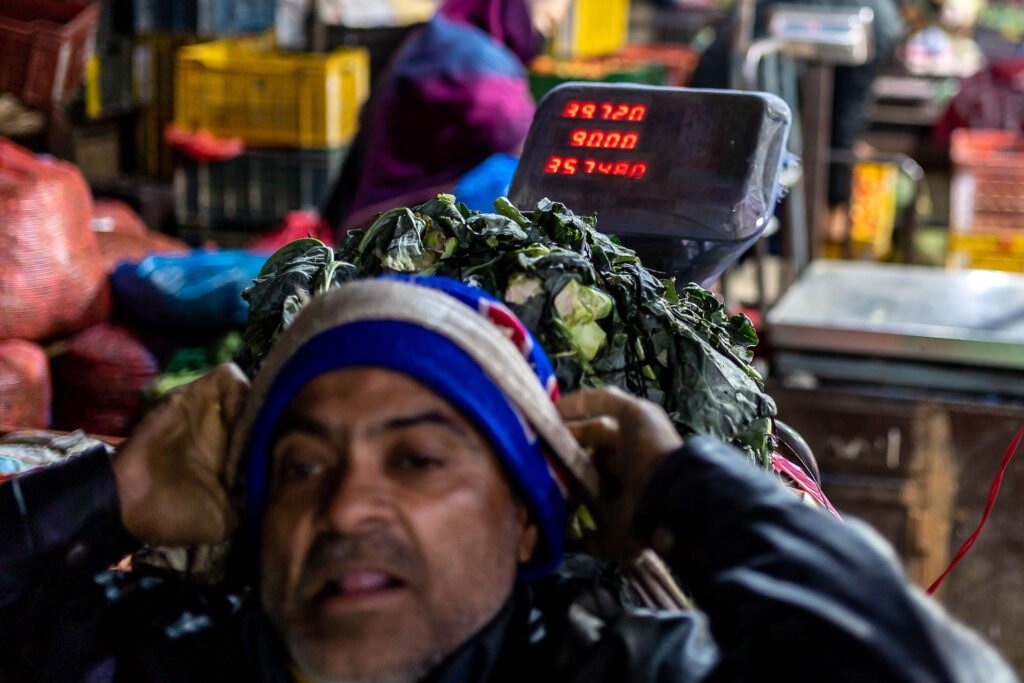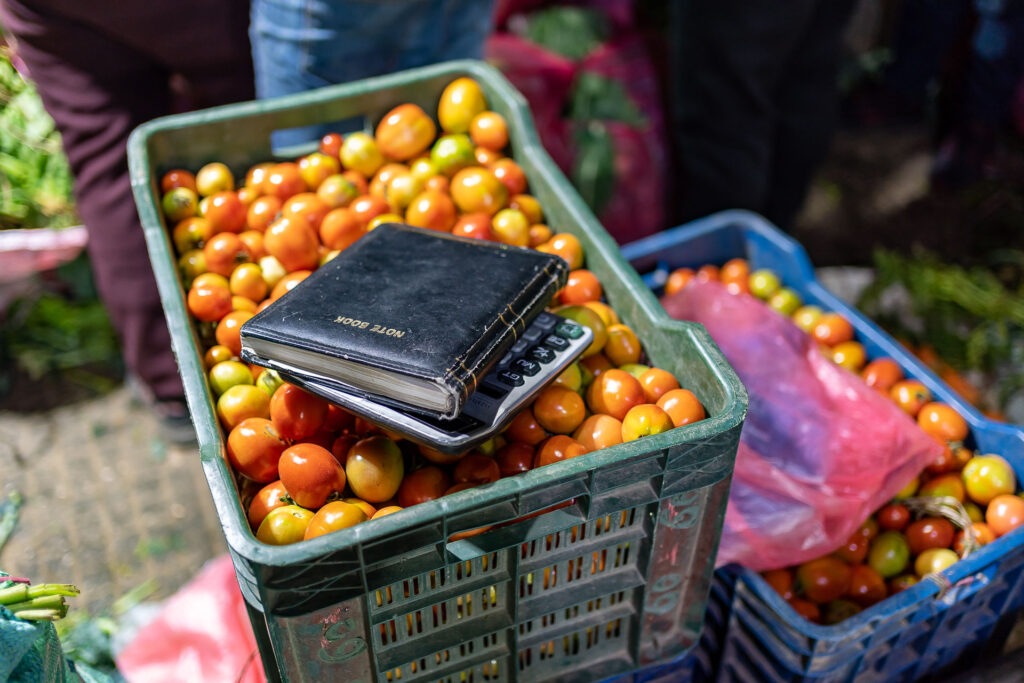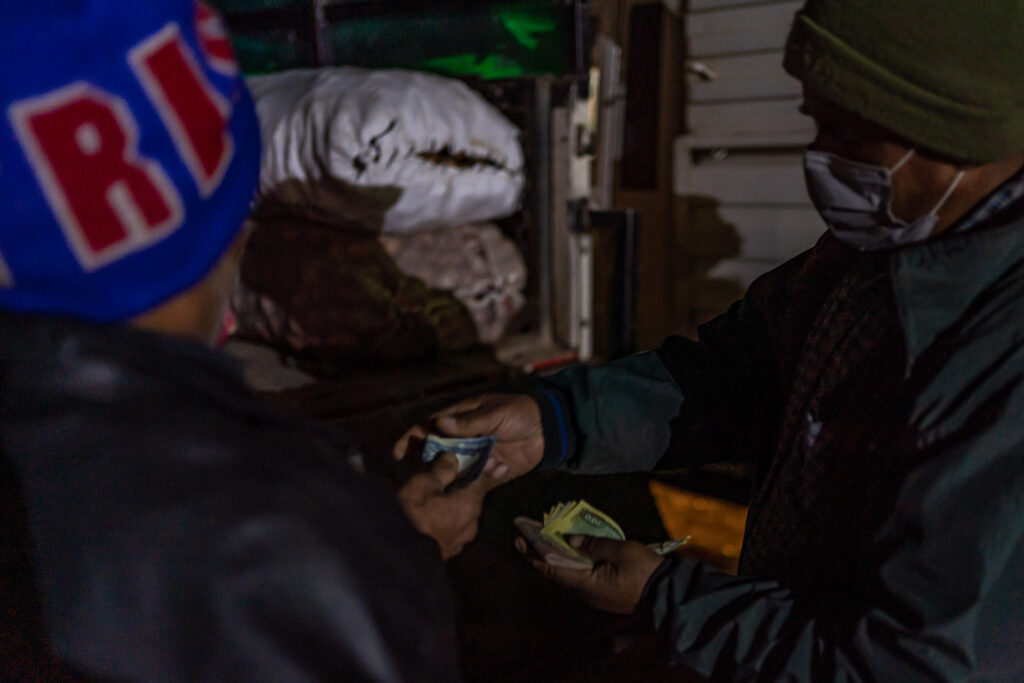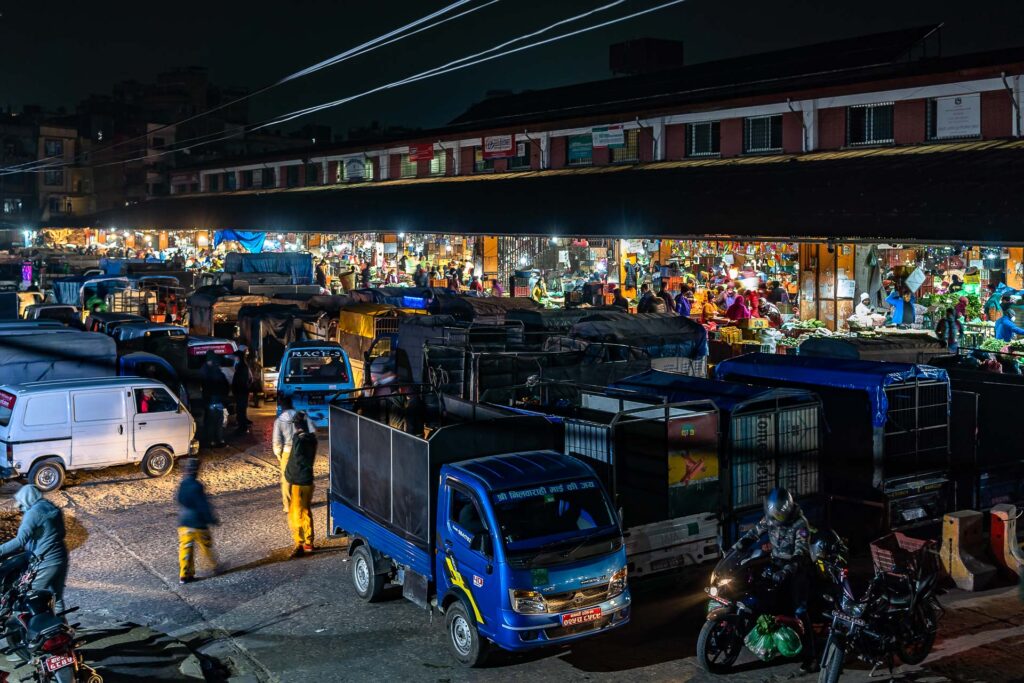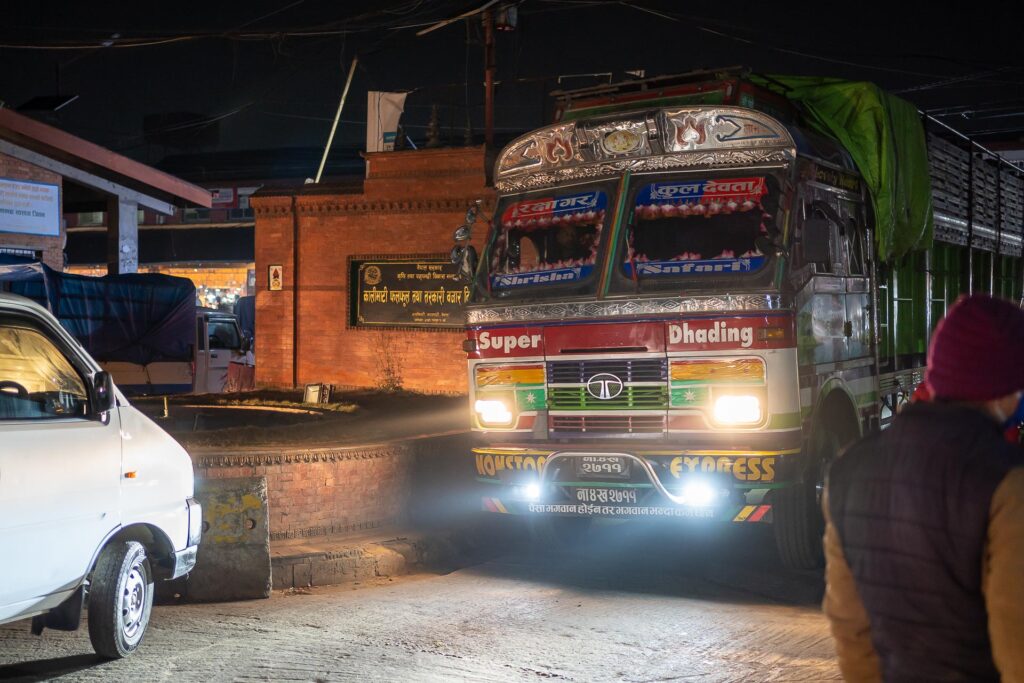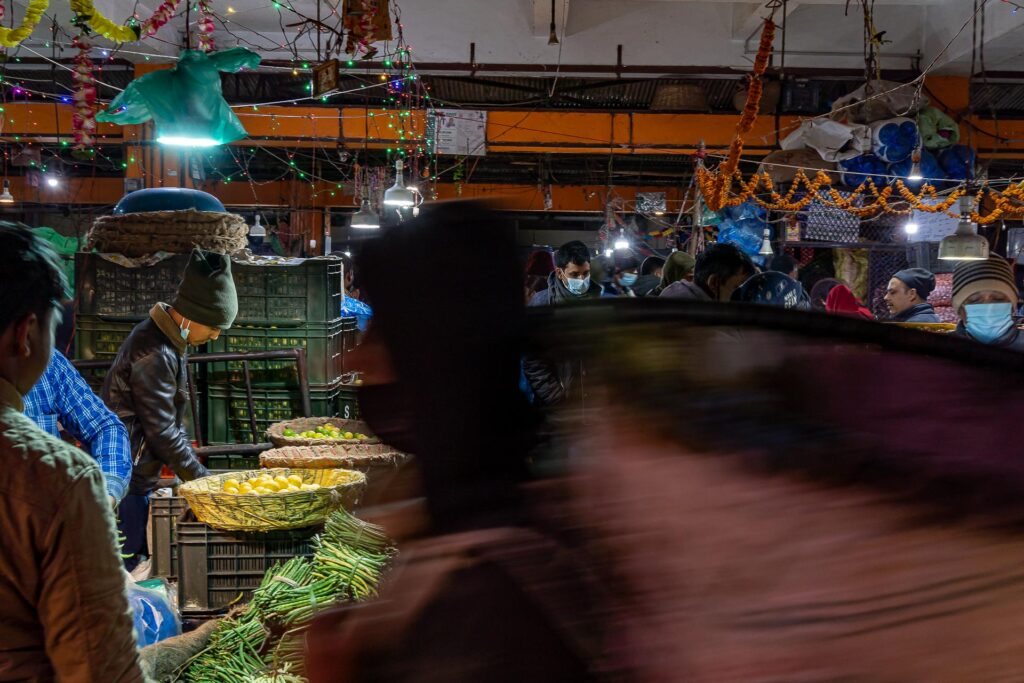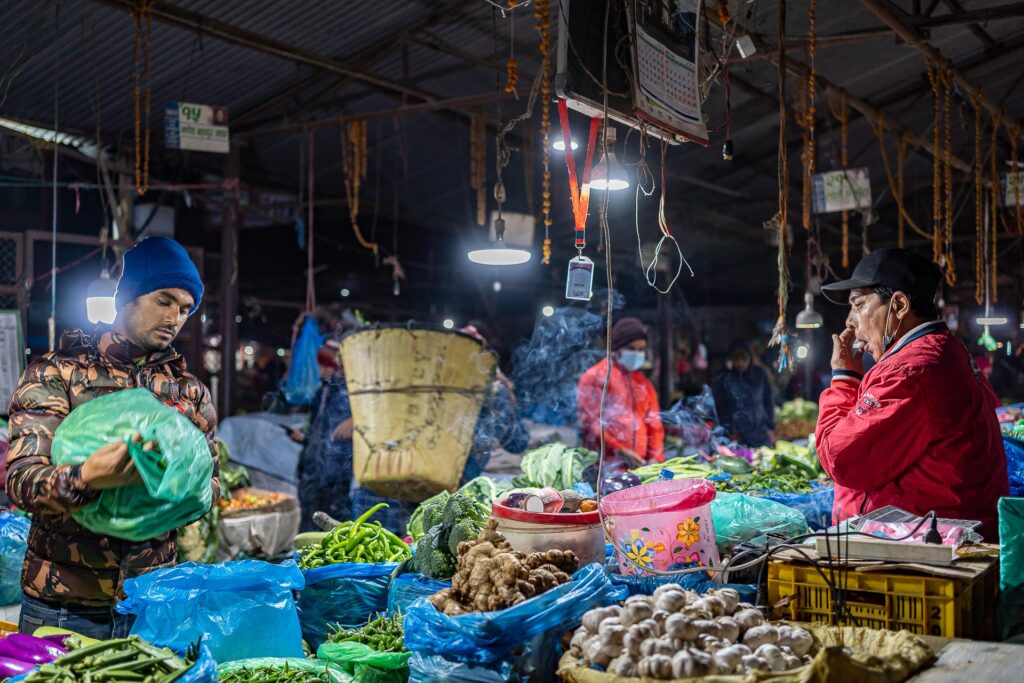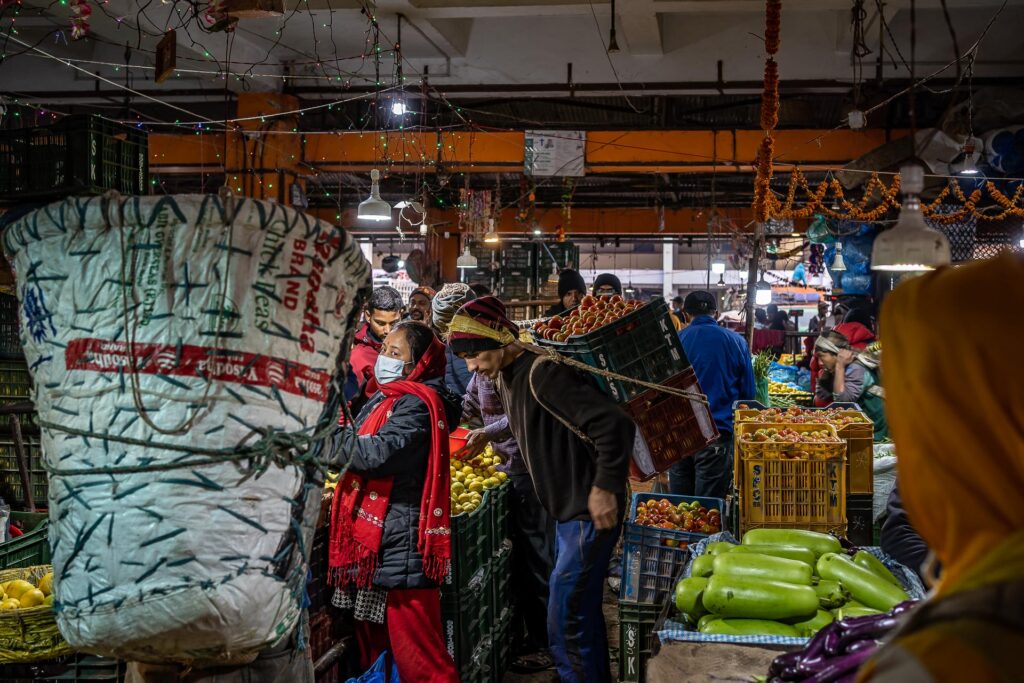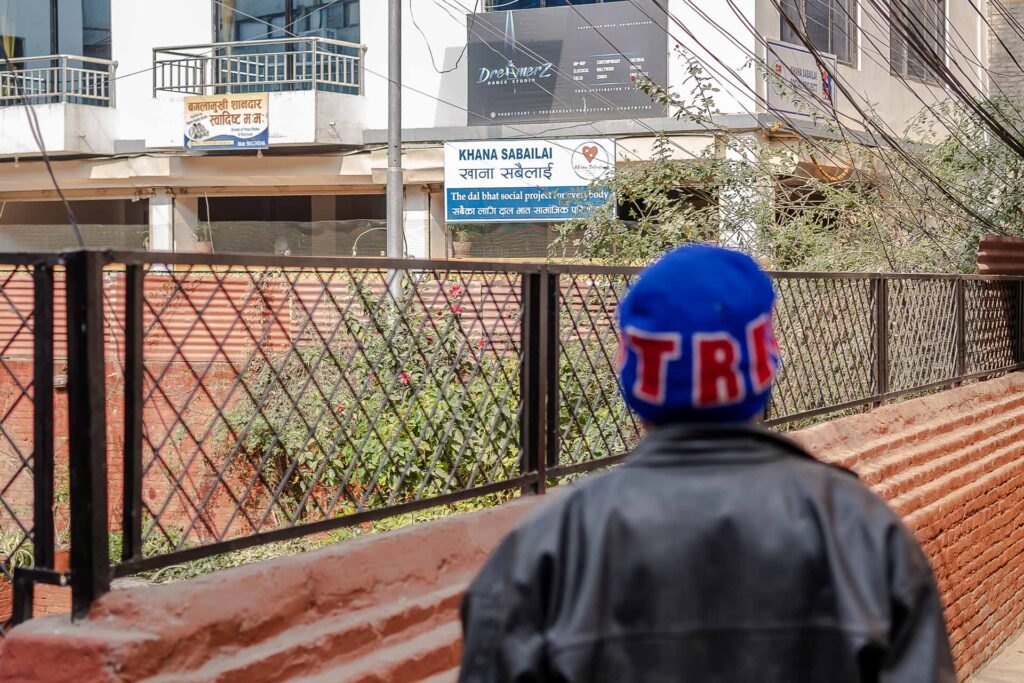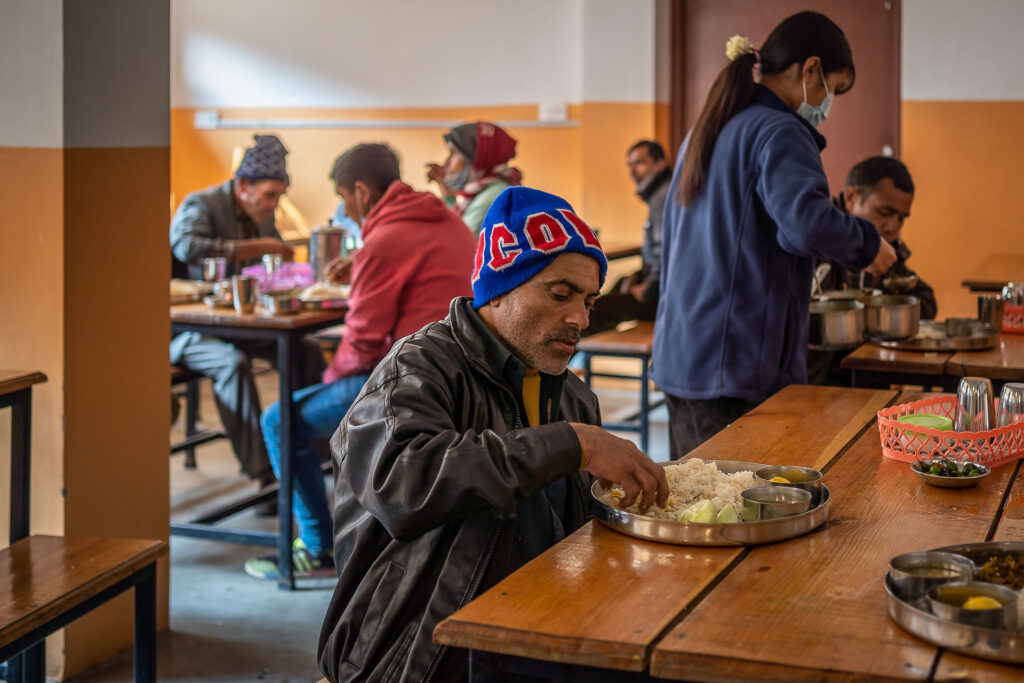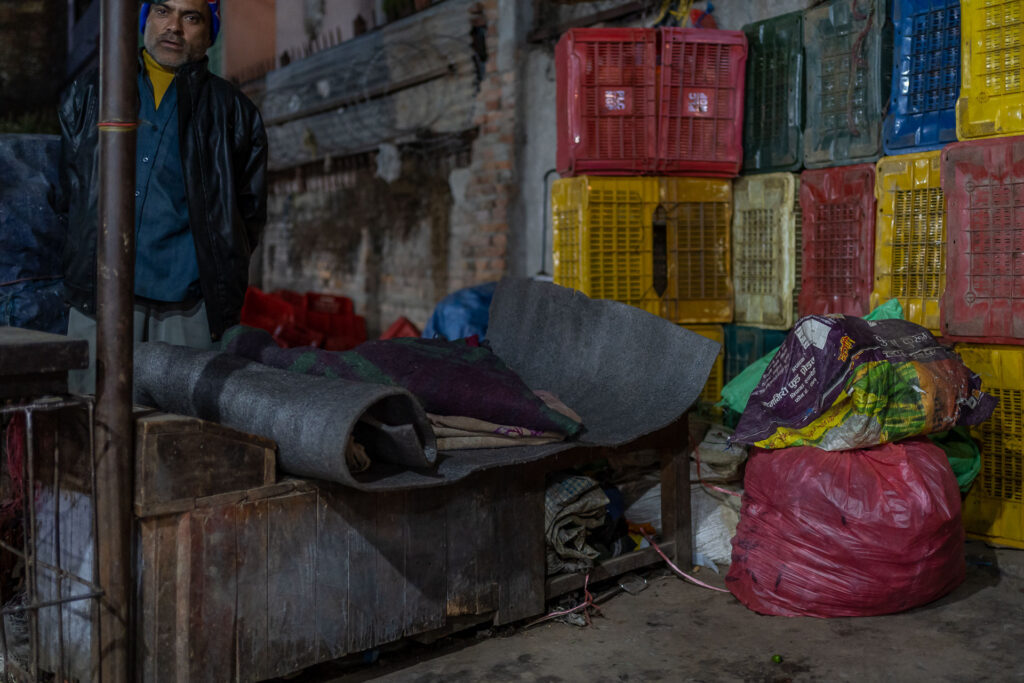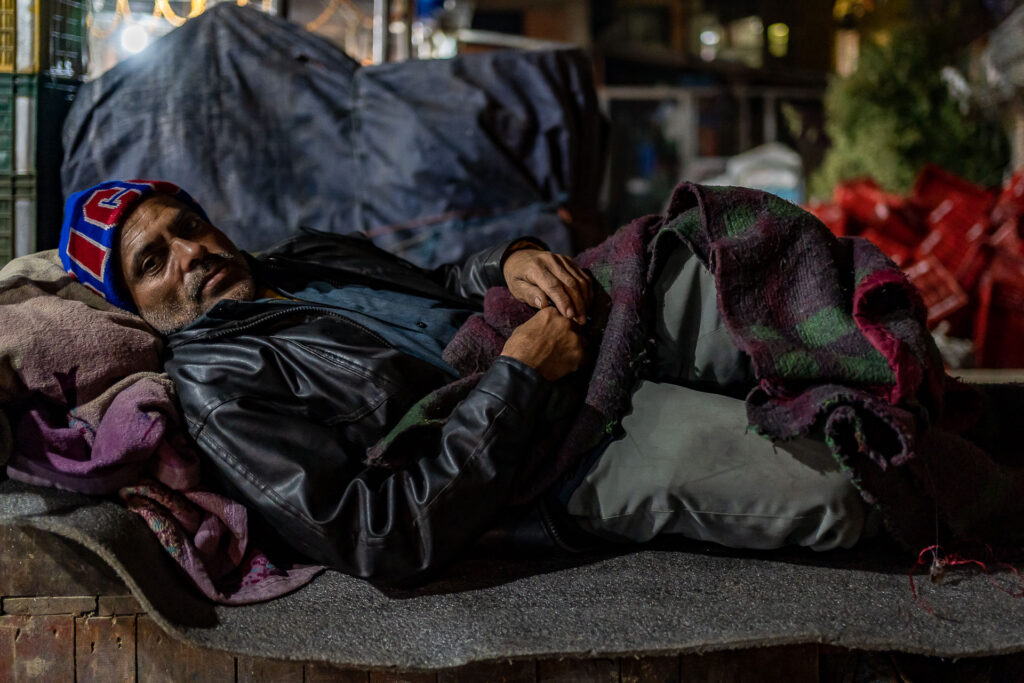Kalimati Market is the largest vegetable market in Kathmandu and consequently the largest market in Nepal. In this huge space in the center of the city, more than 5,000 people work every day, including vendors, transporters, shop owners and porters; many porters. Tikaram is one of them.
When we meet, it is 3 am and the market is at its peak. Once inside, you are overwhelmed by a teeming frenzy that contrasts with the peace of Kathmandu night. It is like entering a huge kaleidoscope made up of men and vegetables: everything is in motion, everything is saturated with colors, everything disorients and stuns you, making you lose the perception of space and time.From 2.30 am to 9 am in this market, purchases will be made for all restaurants, hotels and shops in the Nepalese capital, later it will be open for ordinary people.
Tikaram works here every day from 3 am until 6 pm, with a break around noon to eat at the social kitchen of Hugging Nepal. He is 49 years old and comes from the Gorkha district, about five hours from Kathmandu. Before Covid-19, he lived for many years in India, working in a restaurant as a cook. Once the pandemic broke out, however, he decided to return to his family’s village and stay in Nepal. To find work he then moved, as everyone does, to Kathmandu and started working at the Kalimati market as a porter.
Although he does not reach 1.60 meters and weighs about 50 kg, he carries every day baskets of vegetables on his forehead that can even weigh 70 kg. For each trip in the market area he is paid 30 rupees (about 20 euro cents) while if he has to transport the load out of the market he receives 50 rupees.
With the huge basket hooked on his forehead, Tikaram wanders around the market looking for someone who needs to transport vegetables. In the chaos of the market I find it hard to follow him because, despite the bulky basket he carries and the huge amount of people, he moves with agility and ease, knowing every corner of that huge structure by heart.
Being a wholesale market, the quantities purchased are very large and not infrequently the bags that are loaded on his shoulders weigh over 30 kg. Once the basket is filled and the band is placed on the forehead, he crouches to make strength with the legs and, clinging to where he can and with the help of a few pushes, is able to lift the enormous load and begin its transport. The effort is evident but by now he tells me that he is used to it. When I ask him if he wasn’t happier working in the restaurant than being a porter, he tells me that “It’s not a question of being happy, it’s a question of survival. I need money for my children’s school “and this type of work allows him to earn more than he earned working in the restaurant and to be more independent.
To save money and have more money to send to his family, Tikaram decided not to rent a room but to sleep outside. The owners of one of the vegetable shops of the market allow him to stay and sleep inside their stall and, once the market activity is over, the wooden bench on which the crates of vegetables were previously placed becomes his bed for the night.
The two dishes of Dal Baht that he eats for lunch and dinner at Hugging Nepal’s social kitchen are the ones that provide him with the energy he needs to make a lot of effort and keep him alive. “I come here to eat – he tells me – because the food is cheap and good and the place is clean and close to the market. It is the only moment in which I feel at home. “
